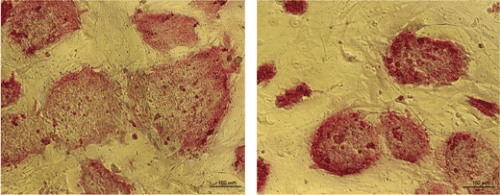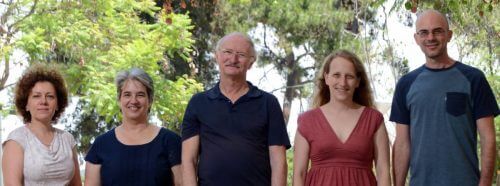Scientists from the Weizmann Institute have shown that the p53 gene prevents cells from becoming malignant not only by preventing the accumulation of DNA defects, but also by controlling epigenetic commands

If there is a status of "stars" in cancer research, this gene is a superstar. He appeared on the covers of magazines and won titles such as "Molecule of the Year" and "Guardian of the Genome". The gene - its name is p53 - earned this special status because it suppresses tumors, and disruptions in its activity are involved, in one way or another, in almost all types of cancer. Tens of thousands of studies have already been devoted to it, and the researchers are still investing a lot of effort in order to find out exactly how it works.
In the study thatRecently published in the scientific journal Genes & Development Weizmann Institute scientists "cast" the star gene in a new role: the scientists showed that p53 prevents cells from becoming malignant not only by preventing the accumulation of DNA defects and protecting the genome in other ways, but also by controlling epigenetic commands, which determine how the genome will function.
All the cells of the human body contain exactly the same genome, but through chemical changes in the DNA and the packaging proteins of the DNA, epigenetic commands determine which genes will be expressed and which will be silenced in each and every cell. In recent years, scientists have discovered that not only errors in the genome itself, but also errors in epigenetic commands, can cause cells to become cancerous, and start multiplying without restraint.
In the new study, the post-doctoral researcher Dr. Ayala Tobi, from the Department of Molecular Biology of the Cell, and other members of the group of Prof. Moshe Oren, because the protein encoded by p53 regulates the attachment of chemical tags called methyl groups - one of the most important epigenetic mechanisms - to DNA. These tags control gene expression: they silence a gene whose expression is not desired in a particular cell.
The researchers conducted experiments on stem cells taken from mouse embryos, and discovered that p53 regulates the amount of enzymes that attach the methyl tags to the DNA, or remove these tags. "The enzymes are constantly attaching and removing epigenetic marks, as if they were writing and erasing text on a blackboard," says Prof. Oren. "We found that without p53, the balance between 'writing' and 'erasing' went wrong. Too many methyl tags were attached to the DNA, so the epigenetic instructions went wrong."
The enzymes are constantly attaching and removing epigenetic marks, as if they were writing and erasing text on a blackboard. Without p53, the balance between 'writing' and 'erasing' went wrong."

The imbalance in epigenetic tags affected the expression of many genes. As a result, the cells did not function properly, and did not respond to messages from the environment in an orderly manner. "Our research revealed that p53 is the gatekeeper not only of the genome, but also of the epigenome," says Dr. Tobi.
These findings may promote the development of treatments that target the epigenetic defects associated with cancer - as an independent treatment or as a treatment that will improve the effectiveness of existing drugs. Furthermore, cancer cells "hide" from the immune system, among other things by changing their epigenetic profile. Therefore, a better and more in-depth understanding of the relationship between the epigenome and the ability of the immune system to act against cancer cells may help scientists, in the future, give an important tool to the body's immune mechanisms - the possibility of destroying tumors.
The research group also included Prof. Loaded condition, Dr. Adam Spiro and Dr. Zohar Shiponi from the Department of Computer Science and Applied Mathematics; Dr. Yael Ilon and Noa Pirat from the Department of Molecular Biology of the Cell; Dr. Elena Einbinder from the Department of Life Sciences Research Infrastructures; and Prof. Michelle Burton, Dr. Rayne McCarthy and Dr. Kendra Alton from the MD Anderson Cancer Center at the University of Texas.

2 תגובות
again:
Let's say a stupid lung cell that was exposed to cigarette smoke messed up its DNA and it replicates itself wildly,
Why does he suddenly turn into a little Einstein who knows how to block the binding sites for the body's antibodies??
Nissim, my father, a rival
Speaking of cancer:
Question, how does it happen that a cancer cell "knows" how to deceive the body's immune system (to block the interface sites of antibodies so that it cannot be marked for elimination???? It's just a stupid cell that went crazy and multiplies a lot.
what is? A bacterium or virus that goes through trillions of mutations until one of them manages to trick the T cells.